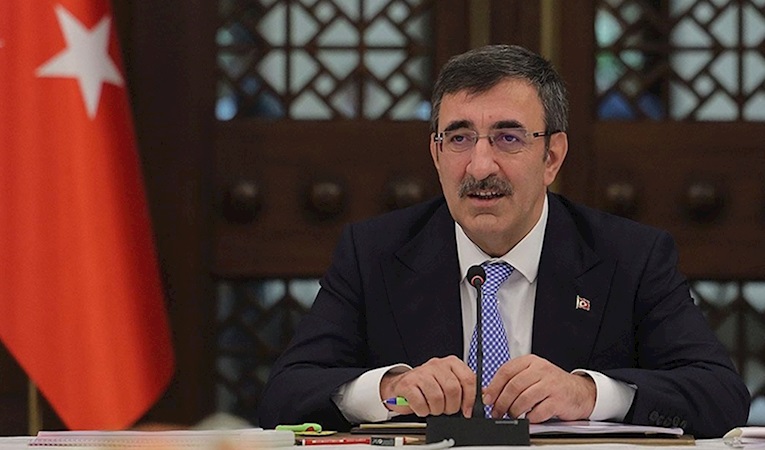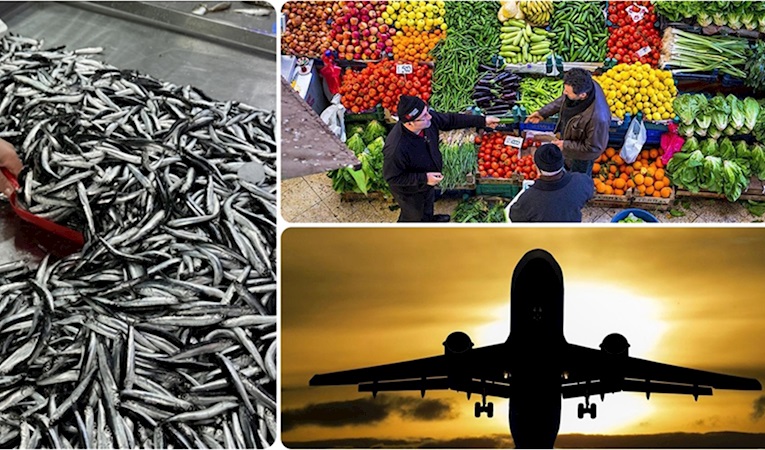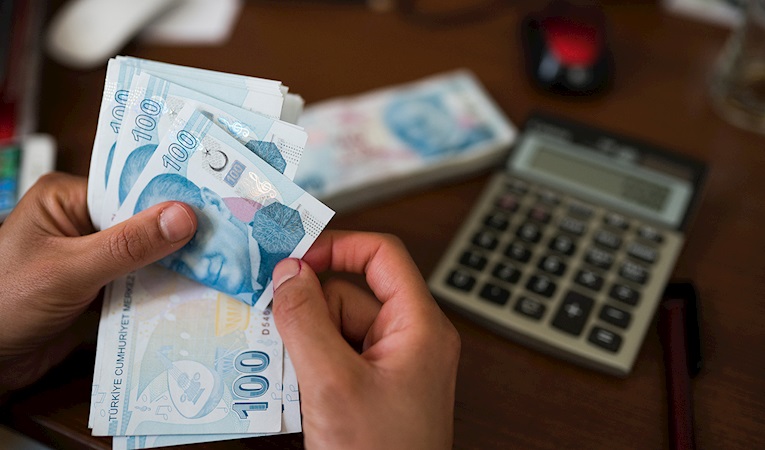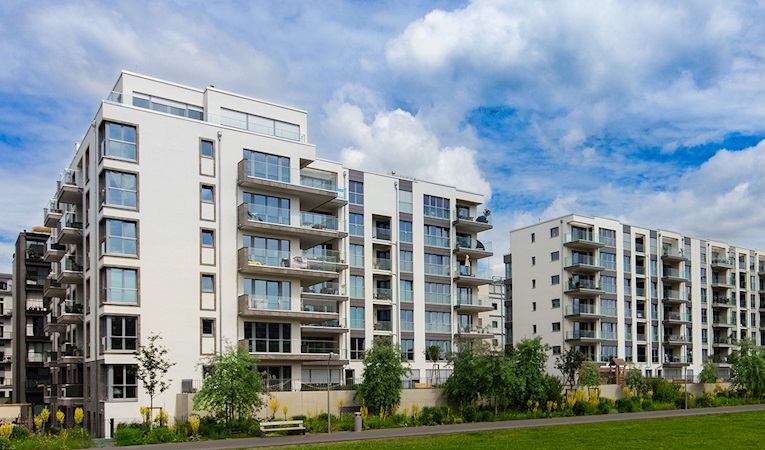
-
BIST 100
 11648,35%1,30En Düşük11510,19En Yüksek11675,73
11648,35%1,30En Düşük11510,19En Yüksek11675,73 -
DOLAR
 43,04%0,05Alış43,0432Satış43,0455En Yüksek43,0524
43,04%0,05Alış43,0432Satış43,0455En Yüksek43,0524 -
EURO
 50,36%-0,10Alış50,3522Satış50,3598En Yüksek50,4892
50,36%-0,10Alış50,3522Satış50,3598En Yüksek50,4892 -
EUR/USD
 1,17%-0,31Alış1,1686Satış1,1687En Yüksek1,1725
1,17%-0,31Alış1,1686Satış1,1687En Yüksek1,1725 -
ALTIN
 6132,37%2,27Alış6132,20Satış6132,53En Yüksek6144,12
6132,37%2,27Alış6132,20Satış6132,53En Yüksek6144,12
-
BIST 100
 11648,35%1,30En Düşük11510,19En Yüksek11675,73
11648,35%1,30En Düşük11510,19En Yüksek11675,73 -
DOLAR
 43,04%0,05Alış43,0432Satış43,0455En Yüksek43,0524
43,04%0,05Alış43,0432Satış43,0455En Yüksek43,0524 -
EURO
 50,36%-0,10Alış50,3522Satış50,3598En Yüksek50,4892
50,36%-0,10Alış50,3522Satış50,3598En Yüksek50,4892 -
EUR/USD
 1,17%-0,31Alış1,1686Satış1,1687En Yüksek1,1725
1,17%-0,31Alış1,1686Satış1,1687En Yüksek1,1725 -
ALTIN
 6132,37%2,27Alış6132,20Satış6132,53En Yüksek6144,12
6132,37%2,27Alış6132,20Satış6132,53En Yüksek6144,12
- Anasayfa
- Haberler
- Tüm Haberler
- "We shall return to before the crisis in 2011"
"We shall return to before the crisis in 2011"
This year Tüpraş retained its position as the largest company in Turkey.
1.08.2010 00:00:000
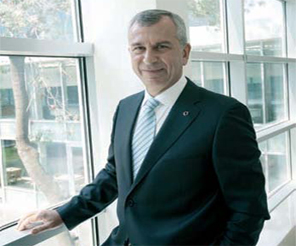
Capital: You are the head of the largest company in Turkey. What are the difficult parts of managing such a large company in an uncertain environment?
- To be honest, when the crisis broke in 2008, we asked ourselves whether, as the management, we had been late in responding to the crisis and we were concerned for a while. But it was later, when the quarterly results were announced in 2009, and we compared our figures with those on the international market, that we realised the difference. In the first quarter of 2009, all of the refineries in Europe were in profit. But by the fourth quarter, the only refineries of the nearly 15 that were still in profit were Tüpraş and two in Poland. Tüpraş really is a big company, a big system... When you hit the brakes, it takes 1-2 months for it to have an impact on the system. This is what the 2008 crisis taught us. We learned that the quicker and more flexible we could be, the more effectively we could intervene in the market.
Capital: In such an uncertain environment, what do you do to be able to make rapid, correct decisions?
- We learned a lot during the crisis. In the past, we used to hold a coordination meeting for the refineries once a month. We now meet five times a month with a lot of participants. We had to set the operating times of the refineries in order to ensure optimization according to market conditions. In order to take the right decisions, teamwork is really very important. Currently, all of the workforce are simultaneously monitoring energy productivity and stock management. We can see all of the revenues, expenditures, production data and energy consumption simultaneously and at all levels. This has a positive impact on our ability to take decisions quickly.
Capital: What are the indicators to which you pay most attention and which you follow the most?
- For Tüpraş, the refinery margin is a very important indicator. We see that our refinery margin is going better than those on the international market. But it is clear that it is still very fragile. The market can turn at any moment. When we look at our net margin, we see that at Tüpraş we have achieved figures which are 6-7 dollars about the Mediterranean market. At the moment, we have a gross refinery margin of 10.2 dollars per barrel.
Capital: You are happy with the results for 2009. But there was a 33.1 percent decline in turnover. What were the reasons for this loss in turnover?
- The main reason was a fall in the price of crude oil. When the oil price falls then so does our turnover, and turnover increases when the price rises. As a result, we don’t pay too much attention to turnover. Is the refinery being managed profitably or not? That is what we study.
Capital: But there was a 24.2 percent fall in your profits in 2009...
- True. But don’t forget that most refineries closed 2009 with a loss. Nearly 20 refineries around the world were shut down. We think that we did good business last year because we closed in the black with a profit. In fact, it is useful to explain a little more here. In the three years our management excellent programme has netted us 244 million dollars. Last year our solo profit was 420 million dollars. 80 million dollars of this was the result for that year of the management excellence programme. We achieved 30 million dollars in energy savings and 80 million dollars in general savings. I mean, we secured 40 percent of our profits though improving operating conditions and energy savings.
Capital: Every year you achieve significant growth figures. How much more do you think that Tüpraş can grow? Do you have limits to growth?
- We don’t look at growth in terms of our oil processing capacity. We measure growth not through capacity but through the increase in the productivity of white products. As a result of the new Fuel Oil Conversion Project, the yield for white products, which is currently around 70 percent, will rise to 80 percent in 2014.~
Under the prevailing conditions, there is a 230 dollars price difference between diesel and fuel oil. This also shows that this project will increase our profitability. What we need to do is to convert the demand for fuel oil in our country into demand for diesel. At the moment we are meeting 60-70 percent of Turkey’s demand for diesel, but 6-7 million tons of diesel is still being imported. As a result of our new project, we shall get 4.5 million tons of fuel oil and produce 3.2 million tons of diesel.
Capital: So what will happen if there are problems with growth in the longer term?
- If there is a need, in a long-term scenario, it is possible to implement a similar project in İzmir. This time we shall raise the productivity of this product to over 90 percent. This is currently in the background of our future plans, but of course the taking of such a decision depends on market conditions.
- To be honest, when the crisis broke in 2008, we asked ourselves whether, as the management, we had been late in responding to the crisis and we were concerned for a while. But it was later, when the quarterly results were announced in 2009, and we compared our figures with those on the international market, that we realised the difference. In the first quarter of 2009, all of the refineries in Europe were in profit. But by the fourth quarter, the only refineries of the nearly 15 that were still in profit were Tüpraş and two in Poland. Tüpraş really is a big company, a big system... When you hit the brakes, it takes 1-2 months for it to have an impact on the system. This is what the 2008 crisis taught us. We learned that the quicker and more flexible we could be, the more effectively we could intervene in the market.
Capital: In such an uncertain environment, what do you do to be able to make rapid, correct decisions?
- We learned a lot during the crisis. In the past, we used to hold a coordination meeting for the refineries once a month. We now meet five times a month with a lot of participants. We had to set the operating times of the refineries in order to ensure optimization according to market conditions. In order to take the right decisions, teamwork is really very important. Currently, all of the workforce are simultaneously monitoring energy productivity and stock management. We can see all of the revenues, expenditures, production data and energy consumption simultaneously and at all levels. This has a positive impact on our ability to take decisions quickly.
Capital: What are the indicators to which you pay most attention and which you follow the most?
- For Tüpraş, the refinery margin is a very important indicator. We see that our refinery margin is going better than those on the international market. But it is clear that it is still very fragile. The market can turn at any moment. When we look at our net margin, we see that at Tüpraş we have achieved figures which are 6-7 dollars about the Mediterranean market. At the moment, we have a gross refinery margin of 10.2 dollars per barrel.
Capital: You are happy with the results for 2009. But there was a 33.1 percent decline in turnover. What were the reasons for this loss in turnover?
- The main reason was a fall in the price of crude oil. When the oil price falls then so does our turnover, and turnover increases when the price rises. As a result, we don’t pay too much attention to turnover. Is the refinery being managed profitably or not? That is what we study.
Capital: But there was a 24.2 percent fall in your profits in 2009...
- True. But don’t forget that most refineries closed 2009 with a loss. Nearly 20 refineries around the world were shut down. We think that we did good business last year because we closed in the black with a profit. In fact, it is useful to explain a little more here. In the three years our management excellent programme has netted us 244 million dollars. Last year our solo profit was 420 million dollars. 80 million dollars of this was the result for that year of the management excellence programme. We achieved 30 million dollars in energy savings and 80 million dollars in general savings. I mean, we secured 40 percent of our profits though improving operating conditions and energy savings.
Capital: Every year you achieve significant growth figures. How much more do you think that Tüpraş can grow? Do you have limits to growth?
- We don’t look at growth in terms of our oil processing capacity. We measure growth not through capacity but through the increase in the productivity of white products. As a result of the new Fuel Oil Conversion Project, the yield for white products, which is currently around 70 percent, will rise to 80 percent in 2014.~
Under the prevailing conditions, there is a 230 dollars price difference between diesel and fuel oil. This also shows that this project will increase our profitability. What we need to do is to convert the demand for fuel oil in our country into demand for diesel. At the moment we are meeting 60-70 percent of Turkey’s demand for diesel, but 6-7 million tons of diesel is still being imported. As a result of our new project, we shall get 4.5 million tons of fuel oil and produce 3.2 million tons of diesel.
Capital: So what will happen if there are problems with growth in the longer term?
- If there is a need, in a long-term scenario, it is possible to implement a similar project in İzmir. This time we shall raise the productivity of this product to over 90 percent. This is currently in the background of our future plans, but of course the taking of such a decision depends on market conditions.
Türkiye ve dünya ekonomisine yön veren gelişmeleri yorulmadan takip edebilmek için her yeni güne haber bültenimiz “Sabah Kahvesi” ile başlamak ister misiniz?


